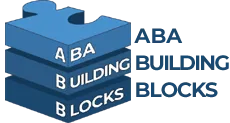In the dynamic field of Applied Behavior Analysis (ABA), success is not merely an aspiration but a continuous journey built on solid foundations. Enter the realm of RCM (Revenue Cycle Management) Essentials for ABA Providers – a vital compass guiding practitioners through the complexities of financial sustainability. In this blog series, we embark on a transformative exploration, delving into the indispensable elements that underpin operational efficacy and fiscal health within ABA practices. From navigating billing intricacies to optimizing reimbursement processes, we unravel the nuances essential for success in today’s competitive landscape. Join us as we unravel the blueprint for building enduring success in ABA provision through the lens of RCM Essentials.
Understanding the Revenue Cycle: Foundations for Success
In the realm of ABA provision, comprehending the revenue cycle is fundamental for sustainable success. This intricate process encompasses everything from client intake to reimbursement, each step playing a pivotal role in financial viability. By understanding the revenue cycle’s nuances, ABA providers can identify potential bottlenecks, streamline processes, and optimize revenue generation. Key components include accurate client registration, efficient billing practices, and diligent follow-up on outstanding payments. Through a comprehensive grasp of the revenue cycle, providers can lay the groundwork for long-term success, ensuring financial stability and continued growth in an ever-evolving industry.
Maximizing Reimbursement: Strategies for ABA Providers
Maximizing reimbursement is crucial for ABA providers to ensure financial stability and continued delivery of high-quality services. To achieve this goal, implementing effective strategies is essential:
Comprehensive Insurance Verification
- Conduct thorough verification of clients’ insurance coverage.
- Verify eligibility, benefits, and authorization requirements.
- Identify any limitations or exclusions that may impact reimbursement.
- Ensure accurate documentation of insurance details for each client.
- Proactively address any discrepancies or issues with insurance coverage.
Streamlined Billing Processes
- Implement efficient billing workflows to minimize delays and errors.
- Utilize electronic billing systems for faster submission and processing.
- Regularly review and update billing codes to align with current guidelines.
- Monitor claim status and promptly follow up on any denials or rejections.
- Utilize automated payment reminders to reduce outstanding balances.
Timely and Accurate Documentation
- Emphasize the importance of detailed and timely documentation by staff.
- Provide training on proper documentation practices to ensure accuracy.
- Incorporate templates and standardized forms to streamline documentation.
- Implement regular audits to identify and address any documentation deficiencies.
- Utilize electronic health record (EHR) systems to facilitate documentation and data tracking.
Proactive Authorization Management
- Develop a proactive approach to obtaining authorizations for services.
- Monitor authorization timelines to prevent lapses in coverage.
- Advocate for extended or additional authorization periods when necessary.
- Maintain open communication with payers to address authorization issues promptly.
- Document all authorization-related correspondence and interactions for reference.
Ongoing Revenue Cycle Analysis
- Conduct regular reviews of revenue cycle metrics and performance indicators.
- Identify trends or patterns in reimbursement patterns and claim denials.
- Analyze reasons for denials and implement corrective actions to prevent recurrence.
- Seek feedback from billing and administrative staff for process improvement ideas.
- Adjust reimbursement strategies based on data-driven insights to optimize financial outcomes.
Maximizing reimbursement for ABA providers requires a multifaceted approach that encompasses thorough insurance verification, streamlined billing processes, accurate documentation, proactive authorization management, and ongoing revenue cycle analysis. By implementing these strategies effectively, ABA providers can enhance their financial performance and ensure sustainable operations while delivering exceptional care to their clients.
Coding and Documentation: Keys to Financial Health
Coding and documentation are the cornerstones of financial health for ABA providers, shaping reimbursement outcomes and ensuring compliance with regulatory requirements. Accurate coding and thorough documentation are crucial for substantiating the medical necessity of services provided, facilitating proper reimbursement, and mitigating the risk of audits or recoupments. ABA providers must adhere to industry-standard code sets such as CPT (Current Procedural Terminology) and ICD (International Classification of Diseases) while documenting services in a clear, concise, and compliant manner. Investing in staff training, implementing electronic health record (EHR) systems, and conducting regular audits can help uphold coding and documentation standards, safeguarding financial integrity and promoting accountability within the organization.
Compliance Matters: Navigating Regulatory Challenges
Compliance with regulatory requirements is paramount for ABA providers, as non-compliance can result in financial penalties, reputational damage, and jeopardize the quality of care provided. Navigating regulatory challenges involves adhering to federal, state, and payer-specific regulations governing ABA services, such as HIPAA (Health Insurance Portability and Accountability Act), Medicaid guidelines, and insurance billing rules. ABA providers must establish robust compliance programs, conduct regular risk assessments, and provide ongoing staff training to ensure adherence to applicable regulations. By prioritizing compliance, ABA providers can foster trust with stakeholders, mitigate legal risks, and uphold their commitment to ethical and responsible service delivery.
Leveraging Technology: Tools for Streamlining RCM Processes
In today’s rapidly evolving healthcare landscape, leveraging technology has become paramount for ABA providers to streamline their Revenue Cycle Management (RCM) processes effectively. Through innovative tools and platforms, ABA Building Blocks LLC in Naples, Florida, enhances operational efficiency and ensures optimal financial performance. Here are five key technological solutions they utilize:
- Electronic Health Records (EHR): Implementing EHR systems allows for seamless documentation of patient encounters, ensuring accuracy and compliance with billing requirements.
- Billing Software: Utilizing advanced billing software automates billing workflows, reducing errors and expediting the reimbursement process.
- Claims Management Systems: By employing robust claims management systems, ABA Building Blocks LLC can track claims in real-time, identify issues promptly, and expedite payment processing.
- Data Analytics Tools: Leveraging data analytics tools enables the organization to gain insights into revenue trends, identify areas for improvement, and make data-driven decisions to optimize financial performance.
- Telehealth Platforms: Embracing telehealth platforms facilitates remote service delivery, expanding access to care while also streamlining billing processes for virtual sessions.
With these cutting-edge technological solutions, ABA Building Blocks LLC demonstrates its commitment to efficiency, accuracy, and excellence in RCM, ultimately enhancing the quality of care provided to its clients.
Continuous Improvement: Monitoring and Adjusting RCM Strategies
Continuous improvement is a fundamental aspect of maintaining effective Revenue Cycle Management (RCM) strategies within ABA Building Blocks LLC. Through regular monitoring and adjustment, the organization ensures its financial processes remain optimized and aligned with industry best practices. To facilitate this ongoing enhancement, the following approaches are implemented:
- Regular Data Analysis: ABA Building Blocks LLC conducts thorough analyses of financial data to identify trends, discrepancies, and areas for improvement.
- Staff Training and Education: Continuous training sessions are provided to staff members to keep them updated on the latest RCM practices and regulations.
- Stakeholder Feedback Integration: Feedback from clients, insurers, and internal stakeholders is actively sought and integrated into RCM strategy refinement.
- Technology Evaluation: The organization regularly evaluates new technologies and software solutions to enhance efficiency and accuracy in RCM processes.
- Benchmarking Against Industry Standards: ABA Building Blocks LLC benchmarks its RCM performance against industry standards to identify areas where performance can be elevated.
By consistently monitoring and adjusting RCM strategies, ABA Building Blocks LLC remains adaptive and proactive in achieving its financial objectives while delivering exceptional care to its clients.
Conclusion
RCM (Revenue Cycle Management) stands as the cornerstone of financial stability and operational efficiency for ABA Building Blocks LLC, located in Naples, Florida. By understanding the revenue cycle, maximizing reimbursement strategies, prioritizing accurate coding and documentation, navigating compliance matters, leveraging technology, and committing to continuous improvement, ABA Building Blocks LLC ensures sustained success in providing top-quality ABA services. With a dedicated team and a commitment to excellence, they uphold their mission of empowering individuals and families through evidence-based interventions. For inquiries or to learn more about their services, feel free to contact them at (833) 422-2249 or via email at info@ababuildingblocks.com. Embark on a journey of growth and development with ABA Building Blocks LLC today.






